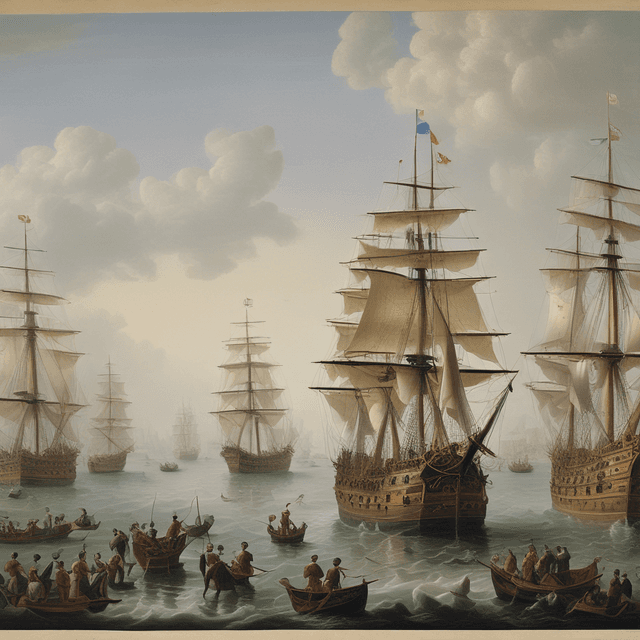
| Name | Dutch East India Company (VOC) |
| Legacy | Continues to shape the modern world |
| Decline | Due to internal corruption and geopolitical shifts |
| Founded | 1602 |
| Influence | One of the most powerful and influential corporate entities in world history, driving the expansion of the Dutch Empire |
| Commodities | Spices • Tea • Coffee • Textiles |
| Territories | Administered colonial territories across Asia, Africa, and the Americas on behalf of the Netherlands |
| Headquarters |
The Dutch East India Company, commonly abbreviated as the VOC (from the Dutch Vereenigde Oostindische Compagnie), was a powerful multinational corporation that served as the driving force behind the expansion of the Dutch Empire during the 17th and 18th centuries. Established in 1602, the VOC quickly grew to become one of the largest and most influential commercial entities in world history, exerting immense economic and political control over global trade networks.
The origins of the Dutch East India Company can be traced back to the late 16th century, when the Netherlands was fighting for independence from Spain. Dutch merchants and navigators, seeking to break into the lucrative spice trade dominated by the Portuguese Empire, began establishing trading posts and settlements in Southeast Asia, particularly in the Maluku Islands (the "Spice Islands").
In 1602, the Dutch government granted a charter to merge these various competing trading enterprises into a single entity - the VOC. This new company was granted a monopoly over the Dutch East Indies trade and empowered to build forts, maintain armies, and even wage war to protect its commercial interests. With ample capital, advanced ships, and a ruthless willingness to use force, the VOC rapidly expanded its presence across the region, establishing a network of trading posts, plantations, and colonial outposts.
Over the 17th and 18th centuries, the Dutch East India Company evolved from a mere trading enterprise into a sprawling corporate-colonial hybrid that administered a vast overseas empire on behalf of the Dutch Republic. The VOC's territories in Indonesia, South Africa, Sri Lanka, and elsewhere came to be seen as extensions of the Netherlands itself, with the company wielding immense political, economic, and military power.
The VOC maintained its own standing army and navy, which it used to conquer and subdue local rulers, seize control of trade routes and natural resources, and protect its commercial monopolies. It also established its own administrative bureaucracy, legal system, and colonial infrastructure to govern the territories under its control. In many ways, the VOC functioned as a state within a state, with the company's directors and shareholders wielding greater power and influence than the Dutch government itself.
At the height of its power in the 17th and 18th centuries, the Dutch East India Company was the largest and most profitable corporation in the world. Through its control of the spice trade, the VOC amassed vast wealth and became a key driver of the Dutch Golden Age, financing the Netherlands' technological innovations, cultural achievements, and global geopolitical influence.
However, the company's success was also marred by widespread corruption, mismanagement, and predatory economic practices. VOC officials were notorious for exploiting local populations, engaging in the African slave trade, and ruthlessly crushing any competition. This led to growing unrest and resistance in the company's colonial territories, as well as increasing scrutiny and criticism from the Dutch public.
By the late 18th century, the Dutch East India Company had become increasingly dysfunctional and unprofitable, plagued by internal power struggles, bureaucratic inefficiency, and competition from rival European powers. In 1799, the Dutch government formally dissolved the VOC, taking direct control over its colonial possessions.
Though the company no longer exists, its legacy continues to shape the modern world. The VOC's model of corporate-colonial expansion, its global trade networks, and its pioneering use of financial instruments like stock and bonds all contributed to the development of modern capitalism and globalization. The company's impact can also be seen in the linguistic, cultural, and architectural influences it left behind in its former colonies.
Today, the Dutch East India Company remains an iconic example of the immense power and influence that large multinational corporations can wield, as well as the potential for such entities to become corrupted and abusive. Its history continues to be studied by scholars, business leaders, and policymakers seeking to understand the complex relationships between commerce, colonialism, and global power.